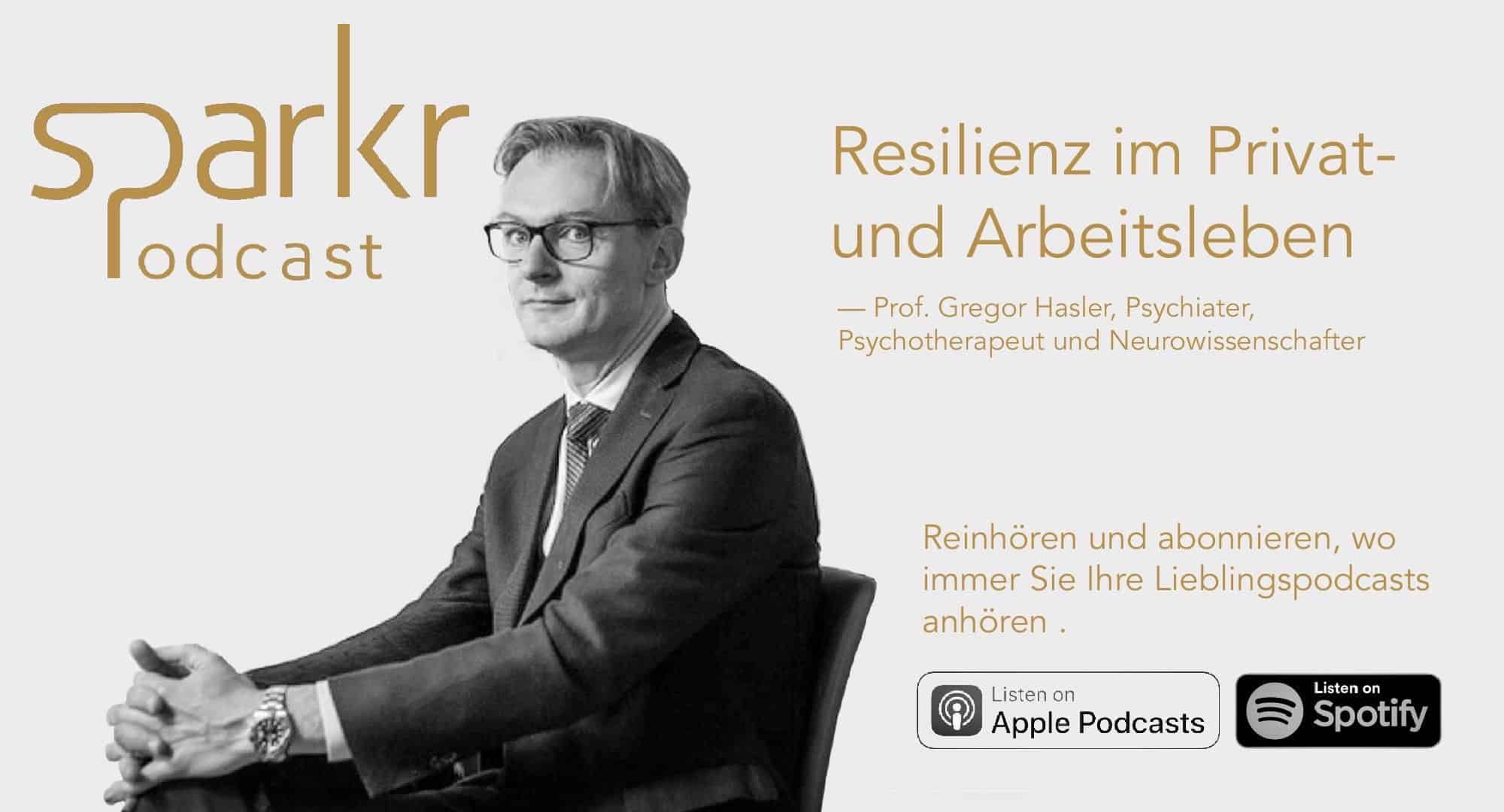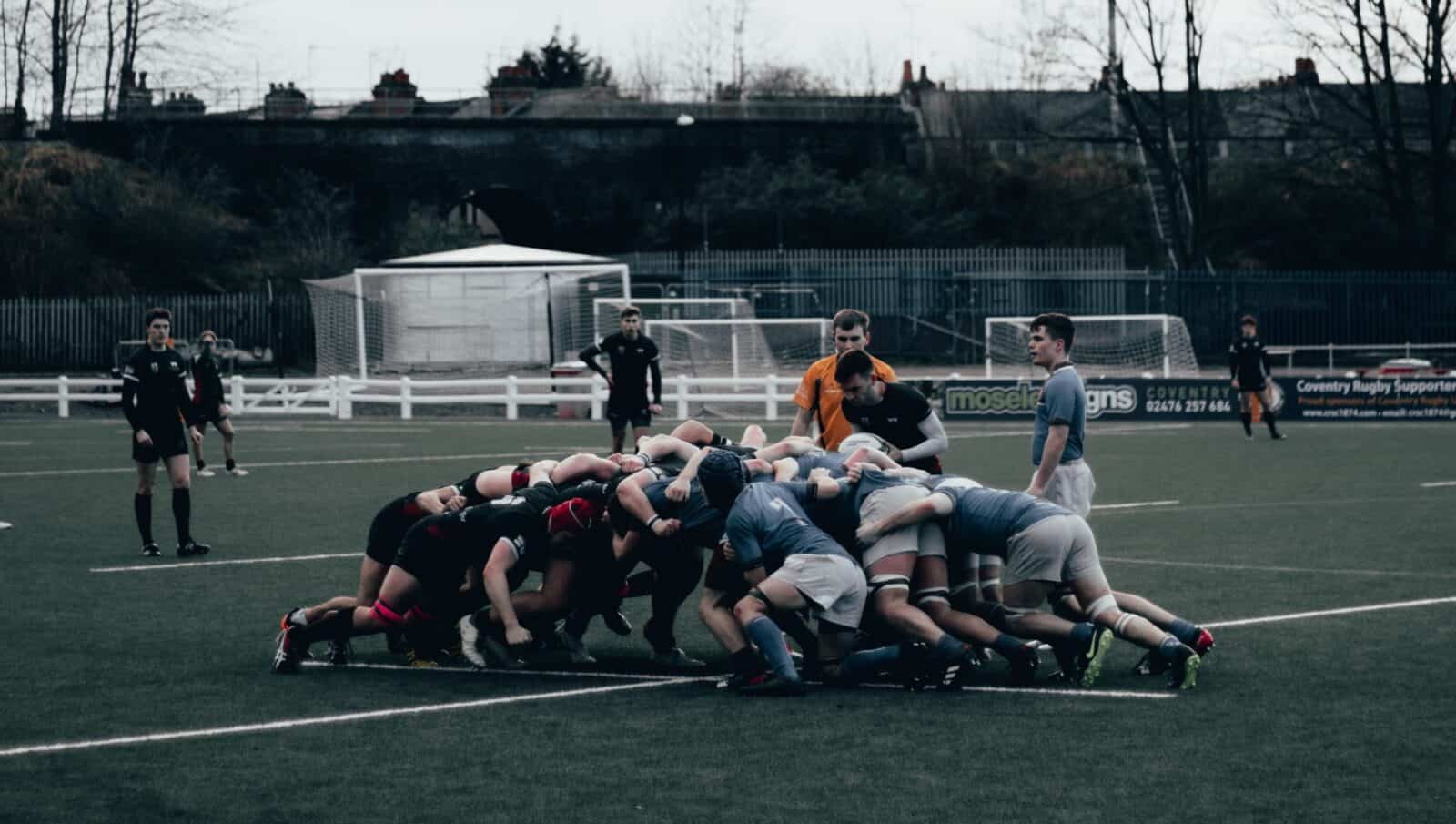Dieser Artikel ist auch auf Deutsch als PDF zum Download verfügbar
Wenn Sie diesen Artikel auf Deutsch gerne jederzeit verfügbar haben möchten, können Sie ihn inkl. Leseprobe von Prof. Haslers Resilienzbuch ganz einfach als PDF herunterladen.
Before we had to deal with a viral pandemic, we already found ourselves in a stress pandemic. The results of stress research are remarkable: Every year the perceived stress increases. And this despite the fact that working hours have decreased significantly since the Second World War and prosperity is increasing in large parts of the world.
As the level of stress increases, so does the need for helpful findings and behavioural tips from stress research. Instead of reading books by self-proclaimed lifestyle or business coaches, I spoke to a leading researcher in the field and made the conversation available here as a podcast (conversation is in German).
Resilienz Resilience Stress Work Gregor Hasler
Resilience: withstanding pressure, repairing damage, preventing stress
The term resilience originally comes from material science. Applied to people or organisations, resilience can be translated as the ability to withstand pressure or stress, to repair any damage or to prevent excessive strain from the outset.
In this sense, resilience sounds like a miracle cure for (mental) health and general resistance. Who wouldn't wish to be better able to withstand stress at the work place? Who wouldn't want to get through a stressful period in life as unharmed and healthy as possible?
The good news is that each individual can make his or her own contribution to increased resilience. Stress and resilience research clearly shows that, for example, creating meaning in ones life or cultivating (geographically) close relationships greatly increases resilience and the chance of regeneration. In the words of philosopher Nietzsche: "If you have a why, there is no how too difficult.
How we can build resilience: 9 factors from stress research
A luminary in the field of resilience research is Prof. Gregor Hasler - a psychiatrist, psychotherapist and neuroscientist currently conducting research at the University of Fribourg in Switzerland. He is also the author of the informative book 'Resilience: The We Factor' (German version can be bought here: Orell Füssli Switzerland; Amazon Germany) and the guest of this Sparkr Podcast episode.
From his research Halser knows that resilience is strengthened primarily by one's own behaviour and not just by an attitude. In order to strengthen resilience we are challenged to modify our behavior and Hasler identifies several behavioral factors that can be influenced as a private person or employer in order to strengthen resilience in private and working life:
1) The social network
The great importance of the social network has to do with our need for bonding. But our need for bonding is also exhausted relatively quickly. Digital relationships create a new problem: activity in social media exhausts the need for relationships without contributing to local social integration. As a result, people who spend a lot of time with social media are poorly equipped to cope with stress. The energy we invest in digital relationships is lacking for investment in local, concrete relationships. This is a key driver of the current resilience crisis, because resilience is a local phenomenon. It is therefore worth investing in direct contact with people who live, work and live near us.
2) The right kind of competition
Competition can motivate people to top performance, but only if it is not exaggerated. Everyone needs a team, in which cooperation is more important than competition. Security and trust can transform competitive structures into cooperative relationships.
3) The realistic optimism
Positive feelings, cheerfulness and gratitude are undoubtedly a blessing. But optimism means something more, namely the conviction that the future will be good. However, this convictional optimism is only helpful if it is realistic. Naive optimism is not advisable.
4) The nature of tension and relaxation
The ability to increase tension is central to resilience. However, constant tension undermines resilience and makes the person susceptible to mental and physical illness. To prevent this, we need relaxation: time for ourselves, time to switch off.
5) The right kind of reward
Ask yourself with each potentially stressful challenge what the corresponding reward is going to be. Choose challenges that are rewarding in the long term and not just materially. There are two important criteria when choosing the reward. Short-term versus long-term: A typical reward after a hard day at work is a beer in the evening. This has the advantage that it is always available and that you can always treat yourself to it, regardless of the strain. Dependence and a beer belly are the disadvantages. People who are one-sidedly focused on short-term rewards have a low level of resilience. Such rewards also have an addiction potential. Investing in qualifications, professional milestones, friendships and intimate relationships are among the long-term rewards that strengthen resilience.
6) Dealing with time
Multitasking, e-mail alerts and mobile phones not only interfere with the presence, they also reduce the ability to concentrate on something in the long run. Ask yourself where you are right now. Try to concentrate on the present. Use computers and smartphones so that they do not disturb your flow.
7) Your own identity
Identity helps to understand oneself and one's interactions with the environment. It also helps to give meaning to experiences. All this contributes significantly to self-control. People who are in control of their emotions are more resilient than those who are overwhelmed by them. Ask yourself: What do I really want? What group do I feel I belong to? What is my dream? What kind of person do I want to be when I leave this world?
8) The Self
Modern people draw meaning and value from their self. This is why it has become so important to train the self. The most effective method of self-fitness are self-efficacy experiences. This refers to experiences in which one brings about a positive change in the environment through one's own activities and competence, even in difficult situations. Another important concept is self-responsibility. In a crisis it is important to understand yourself, to know your limits and to actively leave the role of a victim.
9) Be physically active
Be physically active for at least 30 minutes every day, avoid industrial fast food and eat a balanced diet with natural products.
On his website (German only), where the above points come from and are explained in detail, Hasler writes in summary: "Resilience is the right balance on different dimensions. Positive feelings and dealing with tension and challenges are the foundation of resilience, but not naive optimism. Through social media, local relationships are replaced by digital and global ones. Furthermore, cooperative relationships are decreasing and competitive ones are increasing. Our brain is not made for both changes. Therefore we have to actively counteract, invest in local relationships and actively shape cooperations. Inner independence, a focus on the moment, positive identification and physical fitness are additional factors that strengthen our resilience in the long term.
Sparkr steht für vertrauensvolles Leadership-Sparring
Wenn Sie gerne in Ihre Resilienz und Führungskompetenz investieren möchten, können Sie gerne vertrauensvolle Sparring Sessions mit Christian Lundsgaard-Hansen in Erwägung ziehen.
Christian ist als strategischer Sparring Partner von Führungskräften, Projektleiter, Leadership Coach und Moderator tätig.
Wenn Sie mit Christian Lundsgaard-Hansen ins Gespräch kommen möchten, können Sie ganz bequem einen unverbindlichen virtuellen Termin buchen.
The growth zone: meaningful competition and stress
In the extensive conversation in the Sparkr Podcast Gregor Hasler and I talked about the above mentioned points and discussed examples of application in private life as well as in the working world.
The concept of the growth zone stands out in particular: In order to build up resilience, it is recommended to strive for and achieve meaningful personal growth - this can be at work, with a passionate hobby or in another area. In order to move forward, we must expose ourselves to stress, preferably in the form of temporary and deliberately chosen challenges (with perhaps occasional excessive demands).
The comparison with physical strength training comes in handy: If you want to build up strength and muscles, you have to specifically strain and overload yourself. The key point to prevent this stress from becoming a lasting strain is to consciously choose a growth zone (a specific muscle) and a temporary, manageable, targeted strain (the weekly training in the gym).
Boreout: the underchallenged sibling of burnout
The right level of stress is therefore not to avoid all stress. With this strategy, one would succumb to a depressing standstill. Hasler knows from experience that persistent underchallenge is just as stressful as constant overchallenge. That is why in professional and private life, in addition to preventing a burnout, great attention must also be paid to preventing a "boreout". It's a balancing act everyone needs to master him- or herself.
Resilience in working life: Corporate culture, performance reviews and leadership
It goes without saying that the above-mentioned findings from resilience research are also highly significant for everyday work. Anyone who sees a lot of meaning and importance in his or her work, who can work in a strong team with good relationships and who works with a mature leader is more resilient, more willing to perform and more loyal than an employee who misses all these resilience factors at work.
In the podcast discussion Hasler goes into detail on how to strengthen resilience at the workplace. The data is clear: Competent team leaders have a strong positive effect on the reduction of sick days and other absences - and thus on two very significant cost factors of an employer.
In order to prevent costly boreouts and burnouts, it is especially important to deal with growth zones in working life. This is where supervisors and employees need to step up their game and the performance review is particularly suitable for defining growth zones. This bilateral conversation situation, which is already established as a normal process in every company, can be enriched and further developed with the topic of resilience.
Coffee machines and sleeping problems: The importance of trust, communication, feedback culture and sincere interest
Performance reviews should not only be used to evaluate KPIs or provide feedback on the new coffee machine. It is important to take full advantage of this opportunity for personal exchange, also with regard to increasing resilience: Which activity gives you more energy back than you put in? Where do you like to go the extra mile because you are enthusiastic about the topic? What do you enjoy about your personal hobby? What would you like to learn in the course of the next year and where would you like to develop an interest or skill? How can these personal growth zones be linked to those of the company? Does your sleep suffer when you experience a stressful time at work? I have the impression that I don't see you so often during lunch break. Do you share this impression and why do you think that is?
You can imagine that the information and truthfulness of the answers to such exemplary questions require a relationship of trust, empathy and certain communication skills. These cannot be established at the push of a button, but require sustained, continuous investment.
Particularly those who want to be resilient in times of crisis must invest before the crisis hits. These investments pay off, because they reduce staff turnover, reduce sick leave, and increase motivation and willingness to perform. In the podcast discussion Prof. Hasler and I discuss various ideas on how such investments in resilience can be made (German only).
The workplace is not an oasis of well-being
In all this, it is important to emphasize that strengthening resilience at the workplace is not the same as creating an oasis of well-being at work. Nor does every topic need to be framed as a psychological matter. It is ultimately about taking a sincere interest in the physical and psychological wellbeing of the employees, of making the best of personal development and that of the company, and of achieving a good working environment by taking into account important resilience factors. This is in the mutual interest of employee and employer.
Dieser Artikel ist auch auf Deutsch als PDF zum Download verfügbar
Wenn Ihnen diese Zusammenstellung gedient hat und Sie diesen Artikel gerne jederzeit verfügbar haben möchten, können Sie ihn inkl. Leseprobe von Prof. Haslers Resilienzbuch ganz einfach als PDF herunterladen.
Mehr Episoden des Sparkr Podcasts
Hier finden Sie alle Episoden des Sparkr Podcasts. Gerne können Sie den Podcast auch auf Apple Podcast, Spotify oder allen anderen Podcast Plattformen abonnieren.





10 Gedanken zu “Strengthen Your Resilience With 9 Findings From Stress Research (Sparkr Podcast #15)”
Die Kommentare sind geschlossen.